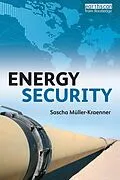'Essential reading.' Bernice Lee, Chatham House
'Lays out the energy security landscape with a commendable clarity that I have not seen elsewhere. It could help save the world.' Science, People & Politics
Accessible and exciting ... [this] is the first truly objective examination of the relationship between resource scarcity, security and ecological destruction. Neues Deutschland
Cuts through the confusion and complexity, clarifying the options for a sustainable energy future. Dan Esty, Yale University
Humanity stands at a threshold: will its shared energy future be peaceful, or will it be threatened by resource wars? How can rapidly depleting resources be managed to the advantage of all, and therefore conflicts averted? How can we avoid irreparable damage to the last areas of untouched natural beauty, all in the name of accessing valuable resources? And how do we arrive at an international energy policy which not only provides safe, economical energy without conflict, but also addresses the all-important issue of climate change: What is the best way to achieve greater energy security?
Energy Security addresses all of these questions, arguing for an urgent overhaul of international law and institutions to control relations with countries such as Russia, which own the worlds remaining fuel supplies. The book presents alternatives to fossil fuels as two diametrically opposing strategies: the increased use of atomic energy; and a comprehensive climate protection policy with a focus on energy efficiency and renewable energy. In times of international terrorism, there are heightened concerns about nuclear proliferation, and Energy Security argues that the future must belong to renewable energy.
Published with the Heinrich B ll Foundation
Autorentext
Sascha Müller-Kraenner is Senior Policy Adviser and the European Representative to The Nature Conservancy. He is also a partner of Ecologic Institute (Berlin) and a lecturer at the Hertie School of Governance.
Zusammenfassung
'Essential reading.'Bernice Lee, Chatham House'Lays out the energy security landscape with a commendable clarity that I have not seen elsewhere. It could help save the world.'Science, People & Politics,Accessible and exciting ... [this] is the first truly objective examination of the relationship between resource scarcity, security and ecological destruction.,Neues Deutschland,Cuts through the confusion and complexity, clarifying the options for a sustainable energy future.,Dan Esty, Yale UniversityHumanity stands at a threshold: will its shared energy future be peaceful, or will it be threatened by resource wars? How can rapidly depleting resources be managed to the advantage of all, and therefore conflicts averted? How can we avoid irreparable damage to the last areas of untouched natural beauty, all in the name of accessing valuable resources? And how do we arrive at an international energy policy which not only provides safe, economical energy without conflict, but also addresses the all-important issue of climate change: What is the best way to achieve greater energy security?Energy Security addresses all of these questions, arguing for an urgent overhaul of international law and institutions to control relations with countries such as Russia, which own the world,s remaining fuel supplies. The book presents alternatives to fossil fuels as two diametrically opposing strategies: the increased use of atomic energy; and a comprehensive climate protection policy with a focus on energy efficiency and renewable energy. In times of international terrorism, there are heightened concerns about nuclear proliferation, and Energy Security argues that the future must belong to renewable energy. Published with the Heinrich B,ll Foundation
Inhalt
Introduction: What is Energy Security? * Facing a New Energy Crisis * The Great Game for Measuring the World * Energy Superpower Russia * The Rise of Asia * A Common European Energy Policy * Defending the Last Paradise * Ways Out of Dependence: Solar or Nuclear? * The Strength of the Law and the Diplomacy of the Future * Index
